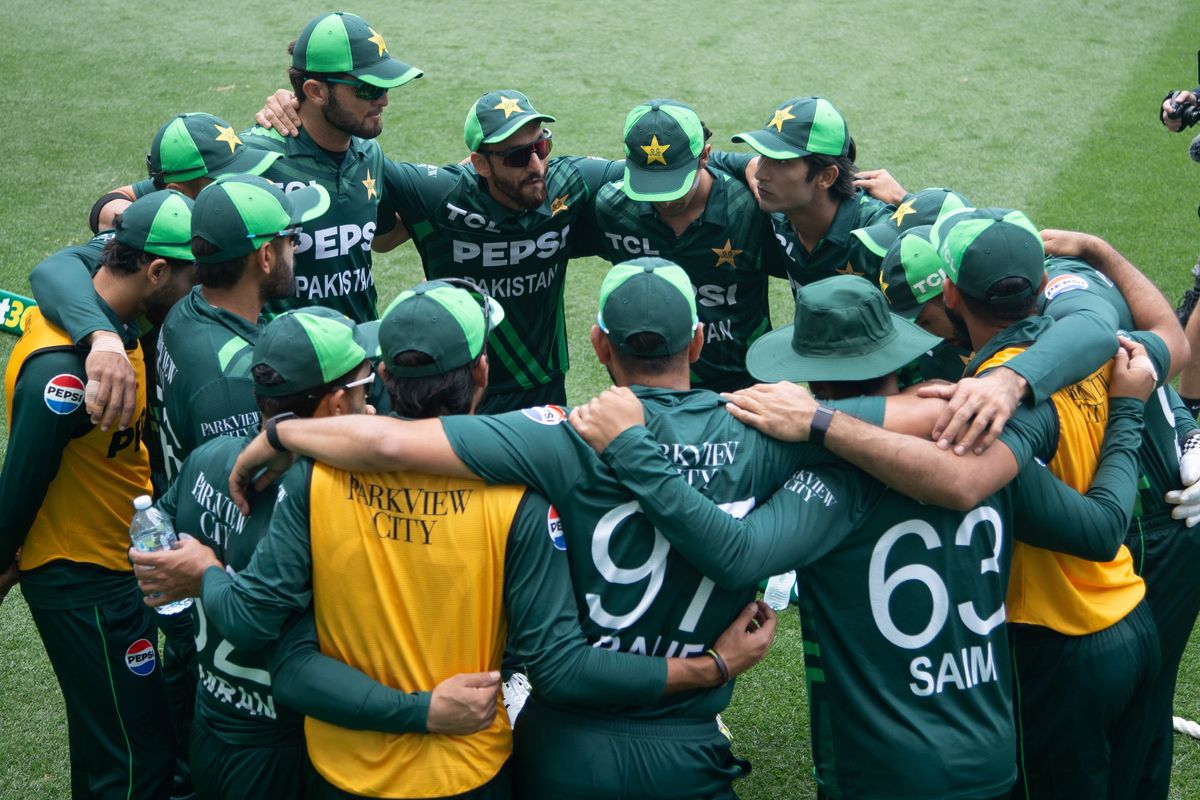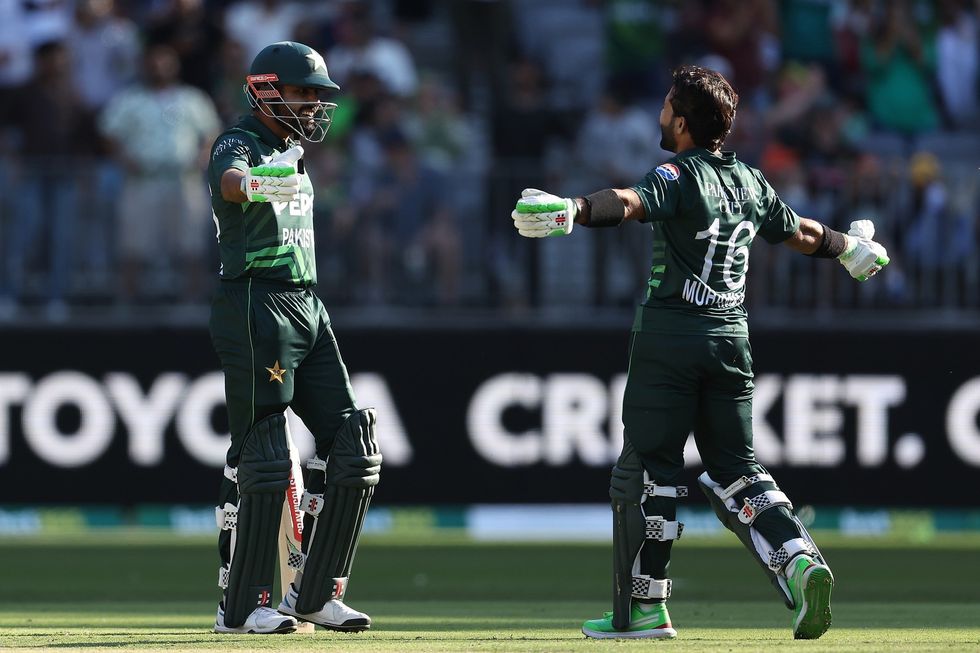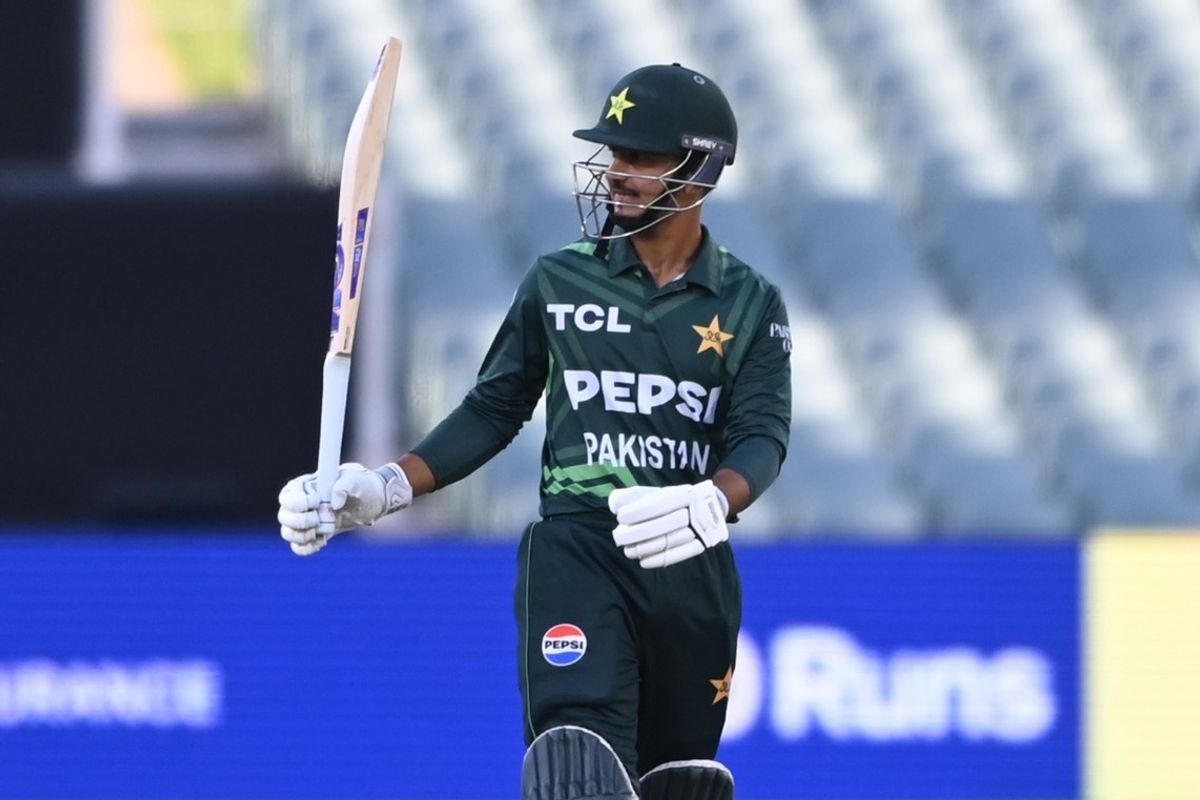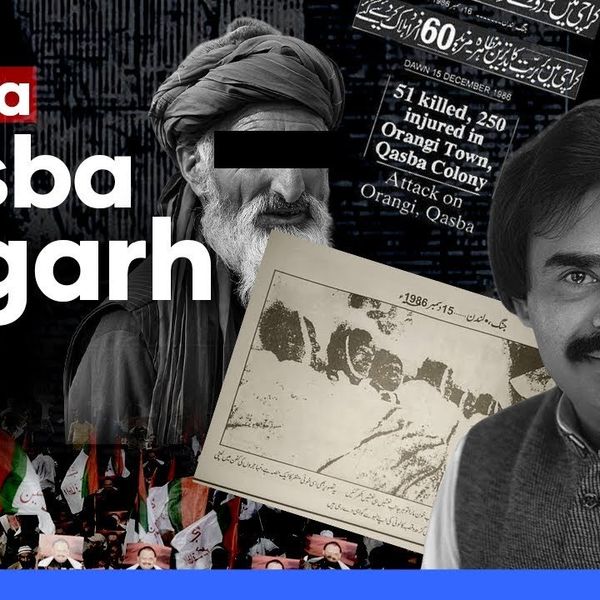Positives abound in Pakistan’s win in Australia, but room for improvement remains
The series win against Australia marks a turning point for Pakistan after a challenging year in white-ball cricket.

Alam Zeb Safi
Correspondent Nukta
Alam Zeb Safi is a sports journalist, having served in the capacity for 25 years. Covered so many international sports events on foreign soil also including England and Australia.

Pakistan players get together before the start of the third One-day International match between Australia and Pakistan at the Perth Stadium in Perth on November 10, 2024.
AFP
Pakistan achieved a historic series victory in Australia with an emphatic eight-wicket win on Sunday, marking their first ODI series win on Australian soil since 2002.
Despite narrowly losing the first ODI in Melbourne by two wickets, Pakistan bounced back strongly, leveling the series in Adelaide with a nine-wicket win before closing with a decisive victory in Perth.
Dominance of the pace attack
Pakistan’s fast bowlers were instrumental throughout the series, collectively taking 26 wickets. Shaheen Shah Afridi, known for his speed and accuracy, shone by generating movement on both sides of the wicket.
Naseem Shah troubled Australian batters with his ability to extract pace and movement. Although he was relatively expensive, his new-ball spells in the final two games provided early breakthroughs.
Mohammad Hasnain, who recently returned to international cricket after refining his bowling action, may not have taken as many wickets, but him dismissing Marcus Stoinis, a player who had previously questioned his bowling style, was a personal highlight.
Haris Rauf was the pick of the bowlers, who led Pakistan’s bowling with 10 wickets, demonstrating his extensive Big Bash experience in Australia. His dismissals of Glenn Maxwell, Australia’s key player, in three out of nine deliveries showed his control and skill, making him the highest wicket-taker of the series.
Rizwan’s transformative captaincy
Shaheen credited Rizwan's inspiring leadership for boosting the bowlers' morale.
“Rizwan was fantastic as the captain. His aggressive style and unwavering support inspired every player to give their best. He instilled confidence, especially in the bowlers, encouraging them to push their limits. His bold leadership turned the series around, making history for Pakistan,” Shaheen said.
Rizwan’s captaincy played a key role in Pakistan's revival, especially as the team sought stability amid recent internal conflicts.
The PCB had even organized a connection camp in September to address unity issues, primarily stemming from a rift between former captain Babar Azam and Shaheen Afridi.
Rizwan, respected for his commitment and friendly nature, bridged this divide effectively. His close rapport with both Babar and Shaheen enabled him to bring the team together, and under his leadership, both players seemed rejuvenated.

Babar, who scored 37 in the opening match, showcased his finishing ability in the following two games, hitting a six to seal the second ODI and a four to close the third.
Former cricketer Sadiq Mohammad praised Rizwan’s approach in this crucial series, noting how he united the team.
“Rizwan as a leader has proved his worth by keeping the whole team like a unit by respecting their efforts,” Sadiq told Nukta in an exclusive interview.
"The whole team deserves a standing ovation for this remarkable win. They truly played as a united front," he added.
Pakistan’s bowlers restricted Australia to 163 and 140 in the last two matches of the series and Rizwan played a big role as he continued to attack with the pacers and didn’t give any room to Australia batters to get any sort of momentum.
Consistent opening partnerships
The consistency of Pakistan’s opening batsmen, Saim Ayub and Abdullah Shafique, further solidified their performance in the second and third ODIs.
Haris Rauf, who won the Man of the Series award, acknowledged the openers' contributions, emphasizing how their early runs provided the bowlers with a solid foundation.
“Look in the last two ODIs, Saim and Abdullah put up a solid opening wicket stand that helped bowlers in their effort to win the series. Such a solid batting performance backed us as bowlers ultimately helping us win the series,” Rauf said.

Sadiq said that the duo displayed skill and focus, ensuring that their shots were precise and strategic during the first five overs.
“While Saim Ayub still has room for improvement, particularly in delivering finishing blows, his disciplined batting shows potential. Saim should have finished the second ODI by scoring the century,” Sadiq said.
“Abdullah Shafique demonstrated a mature, calculated approach, playing with a straight bat and focusing on maintaining the partnership,” he added.
Room for improvement
Despite the positive outcome, Pakistan has some areas to address ahead of the 2025 Champions Trophy.
Their reliance on fast bowlers meant that they played without a specialist spinner throughout the series. Given the importance of spin in Pakistani conditions, the team must develop a dependable spinner for ODIs.
Although Faisal Akram was included in the squad, he did not play, and with only a few ODIs left before the Champions Trophy, Pakistan must give him or another spinner, such as Sufiyan Muqeem, a fair chance to establish their credentials.
The middle order has settled with Rizwan, Babar, and Salman Ali Agha at positions three, four, and six, respectively. However, the number five spot remains open after Saud Shakeel's exit.
Kamran Ghulam and Mohammad Irfan Khan Niazi are both contenders for this role, each bringing unique skills. Ghulam, who had an impressive domestic season with a consistent strike rate, offers stability, while Irfan Niazi’s aggressive approach could add momentum in the middle overs. Balancing these styles will be crucial to maintaining a high-scoring rate in ODIs.
The series win against Australia marks a turning point for Pakistan after a challenging year in white-ball cricket, which included disappointing showings at the ICC ODI Cricket World Cup 2023 and the T20 World Cup 2024.
As they look ahead to the Champions Trophy, Rizwan’s leadership and Pakistan’s cohesive teamwork present a promising future. However, maintaining this momentum and addressing remaining weaknesses will be key to their progress.










Comments
See what people are discussing